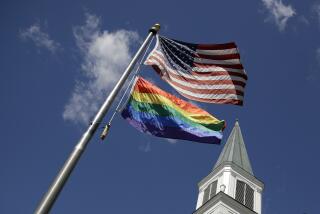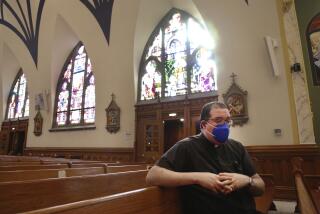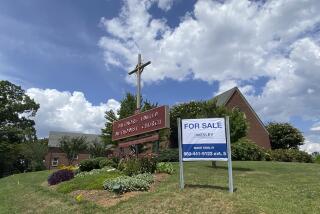Baby Boomers Like Big Churches
- Share via
The small congregation, intimate and cohesive at its best, is not what most people born after 1945 find attractive in a church, according to a specialist in church trends.
The Rev. Lyle Schaller, a United Methodist minsiter who works with the Yokefellow Institute, Richmond, Ind., told a conference recently in Nashville, Tenn., of several reasons for the preferences of the post-World War II generations:
School consolidations, which taught persons how to survive in large institutions.
Urbanization, which has fostered big institutions.
Expectations that greater variety of programs and quality music and preaching are available in a large congregation.
Anonymity: Some people want to go to a church where they can get “lost.”
Most denominations have a lot of small churches. United Methodist statistics for 1984 show that only 1,293 congregations out of the 38,000 total had an average worship attendance of 350 or more.
Though he said he thinks the best way to stop membership decline in the denomination is to start new congregations, Schaller said that is not “where our heart is.” Therefore, he said, the alternative is growth in and through the large churches.
More to Read
Sign up for Essential California
The most important California stories and recommendations in your inbox every morning.
You may occasionally receive promotional content from the Los Angeles Times.













